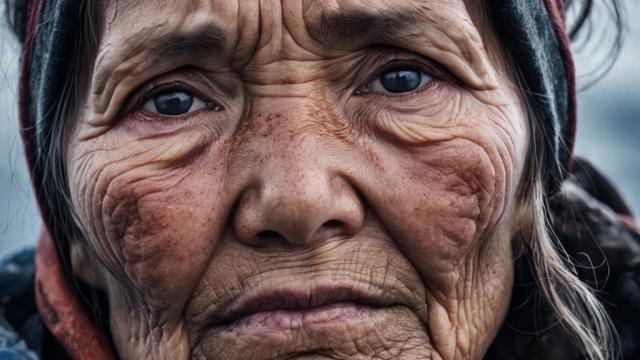
Image generated by Rebe Taylor using OpenArtAI and the prompt: 'The face of the last woman at the edge of the world'.
The concept of human extinction in European discourse simultaneously invokes a universal 'we' while delineating exclusive 'others'—notably dying races, languages, and tribes—exposing a paradox rooted in Enlightenment thought, colonialism, and scientific rationalism. This presentation critically examines how these intertwined narratives have historically constructed human extinction as a social and political, rather than merely biological, phenomenon. Central to this discourse is a gendered dimension: representations of human extinction frequently centre on 'last women' located at the geographical and symbolic edges of the world, embodying both cultural vulnerability and imperialist imaginaries. By tracing the continuity of settler colonial genocide and racial supremacy within contemporary neo-fascist approaches to disaster management, alongside a broader political reluctance to limit progress and economic expansion, this presentation reveals how human extinction discourse remains deeply embedded in systems of exclusion and power. It also highlights the resilience of Indigenous and small language communities, who challenge dominant frameworks that marginalise them, including the persistent emblematic 'last woman' narrative. Revisiting these histories and historiographies broadens our understanding of how power, identity, and survival intersect within the ongoing politics of extinction and resurgence.
Rebe Taylor is an Associate Professor of History at the University of Tasmania's School of Humanities. She holds a PhD from The Australian National University and a Master's from the University of Melbourne. Taylor specialises in Tasmanian Aboriginal history, focussing on colonisation, histories of science and genocide, and Indigenous resurgence. She has authored two multi-award-winning books Unearthed and Into the Heart of Tasmania, and co-edited Volume II of The Cambridge World History of Genocide. Taylor collaborates extensively with Indigenous communities and museums, advancing digital archives and heritage preservation. Her work aims to bridge academic research and public and Indigenous knowledge by promoting cultural regeneration and reconciliation.
Location
Speakers
- Associate Professor Rebe Taylor
Contact
- Dr Stephen Wilks(02) 6125 2349